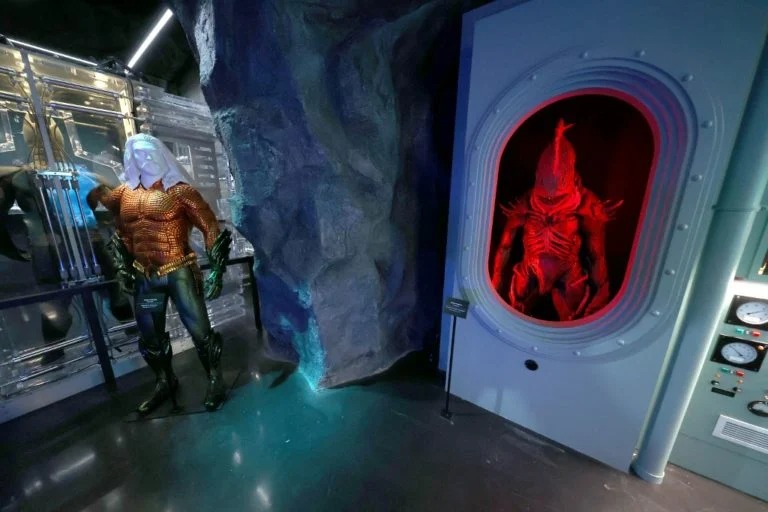While he’s best known as the handsome ocean-dwelling superhero “Aquaman,” actor Jason Momoa delivered a no-nonsense, cold-hearted warning about the dangers of deep-sea mining at the Sundance Film Festival on Friday.
The Hawaii-born star tells a new documentary, “Deep Rising,” about the maniacal efforts of resource-hungry corporations to scrape precious metals from much of the Pacific ocean floor.


Proponents of a deep-sea mining claim that nickel and cobalt pellets used in electric vehicle batteries can be easily scooped from the ocean floor and help reduce our dependence on fossil fuels.
But conservationists and scientists fear it could destroy a poorly understood ocean system that plays an important role in regulating the climate, and some countries are calling for a ban. increase.
“There were moments where I cried and I was emotional,” Momoa told AFP in her narration for the film ahead of its world premiere at the Utah Festival.
“It is very important to use your power for good. I’m passionate about all of this,” added the actor, who took a course in marine biology as an undergraduate and works for the oceans at the United Nations Environment Programme.
The documentary follows fledgling industry players such as The Metals Company, a Canadian group driving mining in the Clarion Clipperton Zone, a vast ocean floor near Hawaii.
Behind the scenes of the film, in contrast to the devastation that ongoing mining is wreaking on the rainforest, its CEO, Gerald Baron, described “the wildest, most desolate part of the planet” as Court wealthy investors with promises of little harm.
But Deep Rising director Matthieu Rytz told AFP that “little is known” about the true dangers of deep water.
“Seafloor extraction is just a rush because there isn’t enough science to understand what’s going on there,” he said.
Nonetheless, The Metals Company has announced that by 2025, it will extract 10 million tons of material from the ocean floor each year.
He is also just one of about 20 research institutes or companies awaiting approval to sign offshore exploration contracts and begin commercial-scale mining.
Ritz’s film argues that there is no “silver bullet” to the energy crisis and that the race to harvest vital metals is not the solution, but the “new oil” that could spark future resource wars.
It marks a meeting of the International Seabed Authority, described by Rytz as “an obscure space in Kingston, Jamaica,” where delegates decide “the future of his 65% of the surface.”
“This is outside the country’s jurisdiction. It’s the high seas,” Rytz said.
“It belongs to all of us or none of us.”
In the film, Rytz addresses scientists who argue that we need to explore alternative, cleaner, and more abundant sources of energy, such as hydrogen for car engines, or expand transportation options such as high-speed trains. I’m talking
“We don’t need these metals in the first place,” he said.
“The mining site is a total loss.
“You have to question things,” Momoa said after watching the film.


